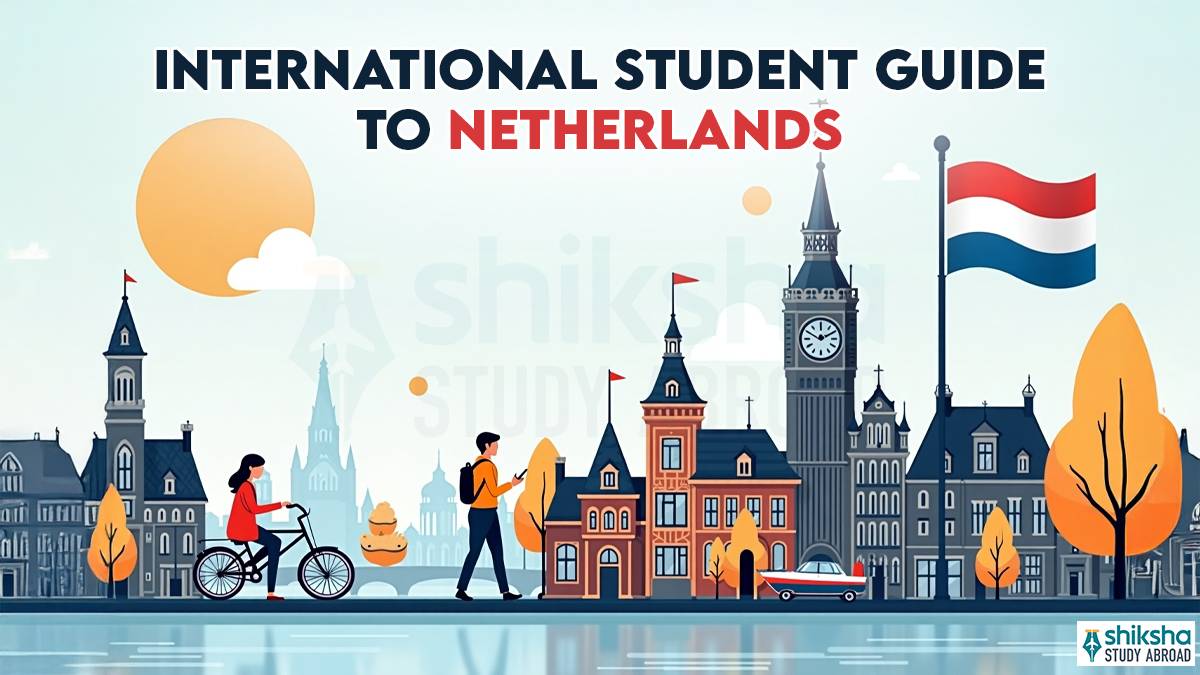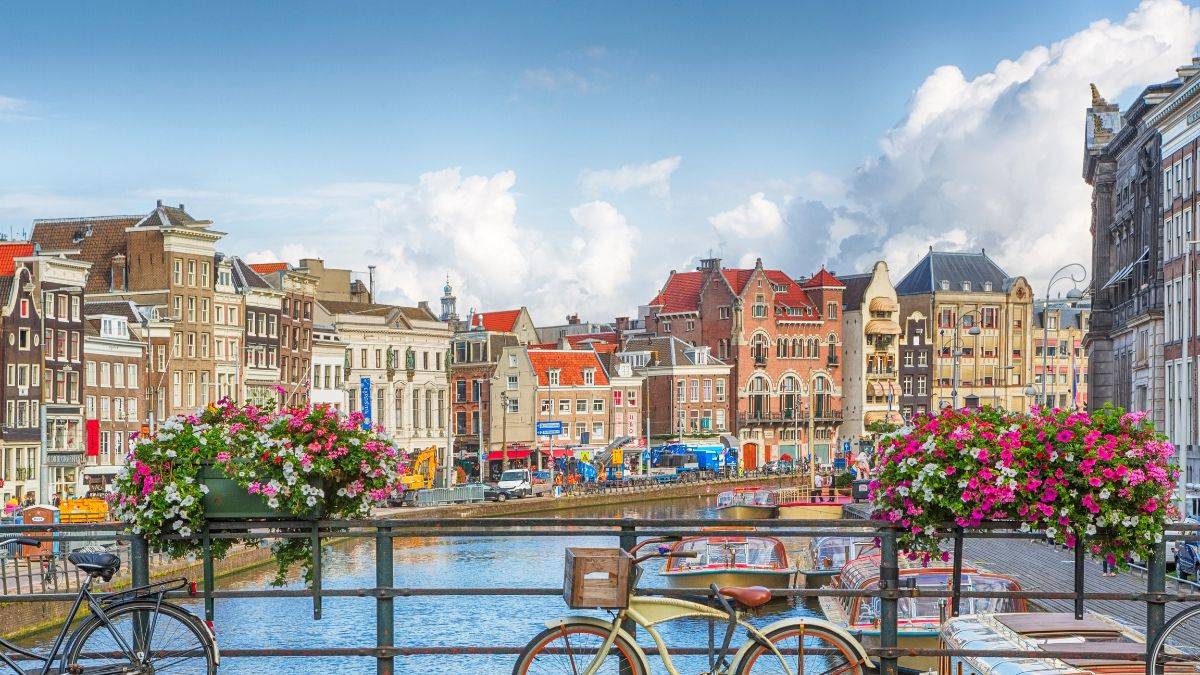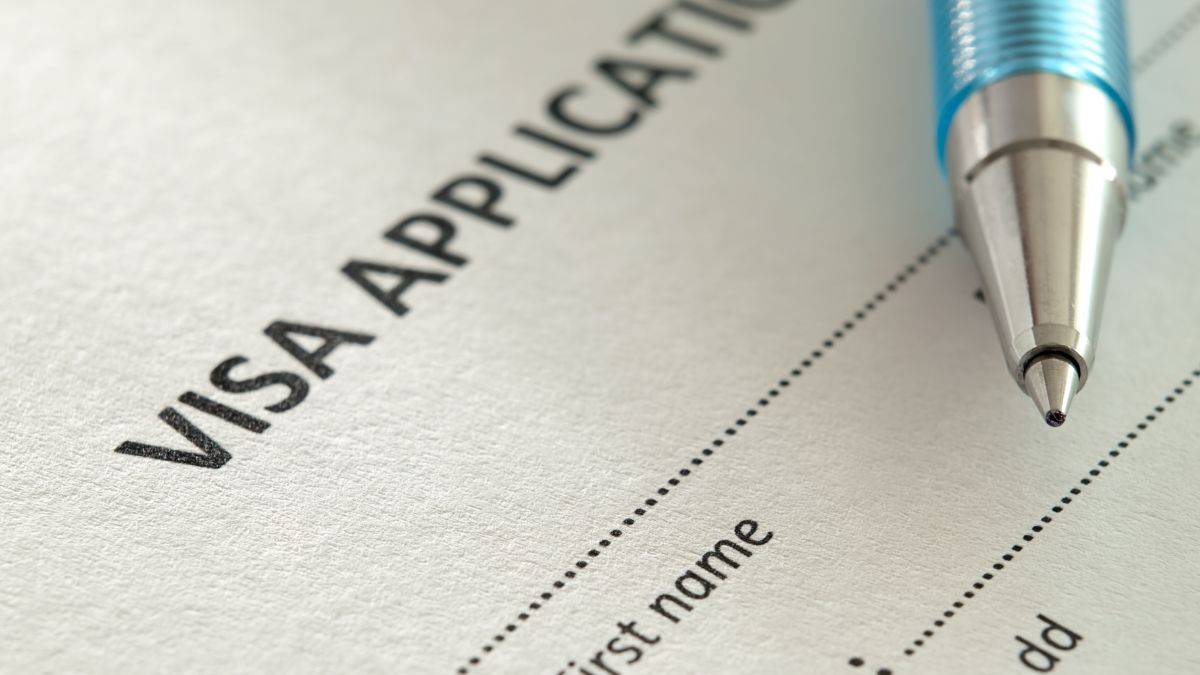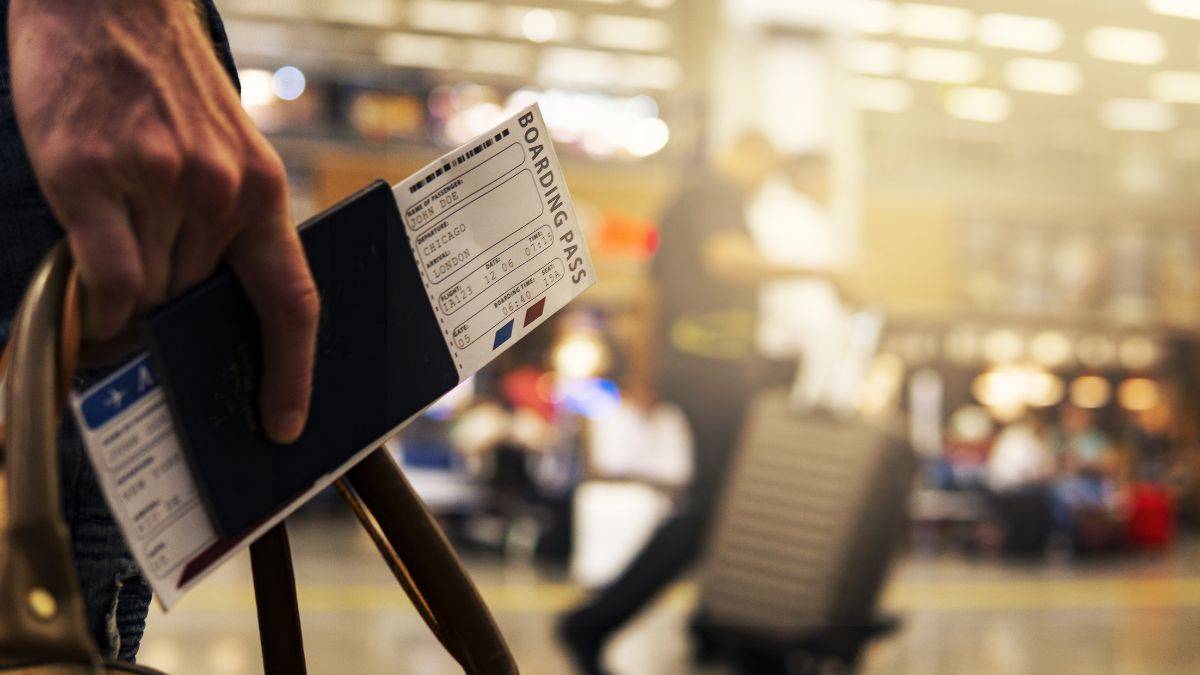Study Guide to the Netherlands for Indian Students
The Netherlands is one of those countries worldwide that offers students the best education and other opportunities. What attracts thousands of international students to study in the Netherlands is its extensive range of programs taught in English, great value for money, a huge international community, one of the safest and happiest countries to live and study in, along with some of the wonderful job opportunities. Interested in studying in Netherlands? Check out this guide for all details about studying in Netherlands as an Indian student.
The Netherlands is home to some of the most popular universities in the world that offer world-recognised degrees to students. Higher education offered by the universities in the country is known for its high quality. Students are required to apply for an entry visa (MVV) as well as a residence permit (VRV), depending on their nationality and duration of stay, to study in the Netherlands. If you are among those students who wish to study in the Netherlands, you can check the complete guide.
- Netherlands Country Highlights 2025
- Education in the Netherlands for Indian Students
- Orientation
- Requirements to Apply in the Netherlands
- Admission Process for the Netherlands
- Intake Seasons in the Netherlands
- Language Exams for Studying in Netherlands
- Cost of Studying in the Netherlands for Indian Students
- Scholarships to Study in the Netherlands
- Education Loans to Study in Netherlands
- Part time Work Permit in the Netherlands
- Visa for Spouse
- Pre-departure List
- Living as a Student in the Netherlands
- Placements
- Post-Study Work Permit in the Netherlands
Netherlands Country Highlights 2025
| International Students Studying in Netherlands in 2024 | 128,000 |
| International Students Admission Growth in 2025 | Predicted to increase by 3-5% |
| Total Universities in Netherlands | 51 |
| Admission Criteria | UG: High school certificate/mark sheets + SAT / ACT scores (not mandatory if optional) + ELP test scores of TOEFL / IELTS / Duolingo PG: Bachelor's mark sheet + GRE / GMAT + ELP test scores + SOP + LOR + Resume |
| Types of Financial Aid in Netherlands | Scholarships, Dutch Student Finance System, Part-Time Work Options |
| Average Scholarship Offered in 2024 in Netherlands | Government Funded: €5,000 | University Specific: €3,000 to €22,000 (or higher) |
| Part-Time Working Hours | 16 hours a week |
| Netherlands Student Visa Fee | €243 |
| Procedure for Obtaining Netherlands Study Visa | Obtain the admission letter from university and apply for student visa |
| Post Study Stay Back Period | 1 year after graduation |
| Average Pay Per Hour in USA | €20 |
Education in the Netherlands for Indian Students
The institutes that offer higher education in the Netherlands can be divided into the following three categories:
- Research Universities: These focus on academic learning and offer graduation, post-graduation, and PhD degree
- Universities of Applied Sciences: focus on practical learning and development. They offer diplomas, undergraduate, and postgraduate degrees to students.
- Institutes for International Education: They offer English-taught courses including bachelor's, master's, and sometimes PhD degrees.
Let us discuss them in detail below:
| Higher Education Institution Types |
Description |
|---|---|
| Research Universities (WO - Wetenschappelijk Onderwijs) |
|
| Universities of Applied Sciences (HBO - Hoger Beroepsonderwijs) |
|
| Institutes for International Education |
|
The academic year in the Netherlands runs from September until May/June of the following year. Some institutions or courses may have enrollments throughout the year as well.
Popular Universities in the Netherlands in 2025
The top universities in the Netherlands are the University of Amsterdam, Delft University of Technology, Utrecht University, and Leiden University in no particular order. Most of the best colleges in the country are situated in cities like Wageningen, Groningen, Leiden, Maastricht, and, Nijmegen.
The colleges and universities situated in The Netherlands offer a wide variety of courses to international students. Some of the best courses for international students in The Netherlands are Liberal Arts, Science, Engineering, Business and Finance, Sports Management, and Philosophy.
Predict your IELTS, TOEFL, and PTE in just 4 steps!
Top 5 Universities in the Netherlands (according to Times Higher Education Rankings 2025) include:
- Delft University of Technology (#56)
- University of Amsterdam (#58)
- Wageningen University & Research Center (#67)
- Leiden University (#73)
- The University of Groningen (#80)
Safety in the Netherlands
The Netherlands is one of the safest metropolitan areas in Europe. Violent crime rates are fairly low although some petty crimes like pickpocketing are not unheard of, particularly in major cities such as Amsterdam.
If you are new in the country never leave your bags or valuables unattended in public areas. When travelling, it's always a good idea to have your country's embassy contact details on hand, should you run into any problems. The Netherlands ranks #18 for 2023 Global Peace Index (GPI) thus, considered as one of the safest countries to study for women and international students.
Weather in the Netherlands
The Netherlands people have a “work hard & play hard” mentality. Life as an international student in the Netherlands is exciting. The Dutch are friendly people who are fond of football, fine art, good food, and drinks like most Europeans. Students from India will experience a major culture shock in the beginning. The consumption of soft drugs is legal, lesbian, and gay rights are respected seriously, and no discrimination is made. Dutch society is progressive and everyone genuinely respects the state and the law.
Lifestyle in the Netherlands
Life as an international student in the Netherlands is really exciting. The Dutch are friendly people who are fond of football, fine art, good food and drinks like most Europeans. Students from India will experience a major culture shock in the beginning. The consumption of soft drugs is legal, lesbian and gay rights are respected seriously and no discrimination is made. Dutch society is progressive and everyone genuinely respects the state and the law.
Indians living in the Netherlands
According to the latest report of https://indianembassynetherlands.gov.in/, there are nearly 240,000 members of the Indian Diaspora including approximately 20,0000 members of and Hindustani-Surinami community living in the Netherlands currently. It is the second largest population of people of Indian origin in Europe (next only to the UK). The Hague, Rotterdam, Amsterdam, Utrecht, Zoetermeer, and Almere are the regions where most Indians reside.
Accommodation for Indian Students
Firstly, you need to decide whether you want to live in university-managed accommodation, or with a private landlord. Choosing university-managed accommodation can also give you a catered or self-catered option. Catered accommodation offers the benefits of your meals being cooked for you and a degree of certainty with meal costs.
Suppose you have an idea about what you prefer. In that case, the accommodation office at your university will be able to tell you what accommodation they have available, so that's the place to start. If you are thinking of renting from a private landlord or if your chosen university can't offer you anything in its own residential premises, the accommodation office should be able to provide you with a list of private properties and landlords in the area.
Wherever you choose to live, you should make sure that you know your contractual rights and responsibilities. In most cases, you will be asked to enter into a tenancy agreement, which you should read thoroughly before you sign.
Orientation
Orientation week is mandatory for international students to ensure that you arrive before it starts. This is the time when you will be introduced to the university and its services, as well as enrol in your classes. You must read your guidebook, which the college provides. The guide explains each part of the admission process.
Activities
Along with sports, colleges offer extracurricular activities offering students a wide range of experiences. Music, drama, science, and literary societies are offered in all colleges, and there will be opportunities for outdoor education and other leisure activities. Visits to theatres and concerts, to places relevant to the courses of study such as art galleries and museums, religious centres or historical sites, scientific companies and projects are all part of college life.
Requirements to Apply in the Netherlands
Universities in the Netherlands offer numerous degree programs in the English language (especially an MBA in Netherlands is mostly offered in English), which means that course options are almost unlimited for Indian students. Currently, more than 2,100 courses are taught entirely in English, ranging from training seminars to Master’s degrees. Applicants can browse through the database of English-taught study programs and courses in the Netherlands.
To pursue a UG course, you must have passed class 12th, and to get a PG degree, you must have obtained a bachelor's degree in the concerned field. The student should be at least 18 years old before joining a degree program. For the province of Groningen, the required academic records might be different. So if you are applying to a university in Groningen, check with the institute. It is important to remember that even though entry requirements are lower at Dutch universities, the standards are not. So you need to think carefully beforehand whether you will be able to cope with the high standard of education over the next few years or not.
The following documents also need to be submitted:
- Mark sheets of Standard X, XII, and the bachelor’s degree (if applicable)
- Results of TOEFL or IELTS
- GMAT or GRE score (as applicable)
- Results of Dutch language test Staatsexamen NT2 only for enrolment for programs in Dutch.
- If you have work experience then two letters of recommendation (LOR) from the employer/manager who knows you well and can comment on your professional abilities
- Motivation Letter (similar to SOP)
- Resume
- Portfolio (in case of students applying for art and design courses or architecture programs)
- Others (Certificates/achievements at the state and national level and extracurricular activities)
- Proof of funds
- Health insurance
- A copy of your passport
- Photocopies of these documents should be translated into English and certified by the educational institution or by a notary.
Motivation Letter: A Motivation Letter is your introduction to the college and admission officers. It is always written in the first person and describes the reason for applying to a particular college. It needs to highlight why you are a perfect fit for the college and why the college should accept you. The style of writing could differ from formal to casual, but it is important to remember that it should reflect your personality as well.
Essay: Essays are also required to be submitted by a prospective student. Essays are an important part of the university admissions process. Students may be required to write one or two essays, along with a few optional essays too. Common topics include career aspirations, strengths and weaknesses, skills, experiences, and reasons for considering a particular school.
LOR: A letter of recommendation (LoR) is a reference letter written by a third party describing the qualities, characteristics, and capabilities of the prospective student to recommend him to the college in terms of that individual’s ability to perform a particular task or function. The third party could be a professor, direct manager, etc.
Admission Process for the Netherlands
There are two ways to apply to Dutch universities:
- Universities accept applications through their website, using their own online application modules. Universities like Hanze UAS, Leiden University, and Groningen are some examples.
- Universities accept applications through Studielink, an online enrolment system. Some examples include Inholland University, The Hague University, and NHTV Breda University.
You will have to make an account on either the college website or Studielink to provide your basic information, submit the scanned version of your documents, and pay application fees. You will be informed about the application process and its stages through this account.
Application fee: All colleges require that you pay an application fee while applying. The fee amount will differ depending on the college and course being applied to, so check with individual colleges about their application fee.
Steps to Apply for Universities in the Netherlands
The common steps to applying for admission are as follows:
- Search for colleges and courses
- Contact schools and visit websites for information
- Narrow down your list of schools
- Take the language exams like TOEFL, IELTS, or Staatsexamen NT2
- Write Motivation letters and ask for Letters of Recommendation
- Apply to the colleges which fit your interests
- Appear for video interviews of the colleges that shortlisted you (if applicable)
- If accepted, apply for a student visa
Check out Affordable & Cheap Universities in Netherlands
Intake Seasons in the Netherlands
Dutch universities have enrolments twice a year: in September starts the fall semester and in February the Spring semester.
The admissions season usually begins in September or October of the following year. So, admissions start in October 2024 for entry in September 2025. The deadline for an application would vary from university to university and any entry restrictions such as Numerus Fixus*. For 2025 session admission, the deadline for most of the courses is May 2025. However, universities may have a different process, so you should check directly with the university of your choice. However, you need to set up your account on Studielink by 1st May 2025 in all cases.
*Numerus Fixus is a method for limiting the number of applicants at a university. In Dutch universities, it is in place for courses where there is excessive demand.
Language Exams for Studying in Netherlands
The International English Language Testing System (IELTS) and Test of English as a Foreign Language (TOEFL) are standardised language tests, which are required to be taken to get admission to colleges. These follow different formats, structures, and result bands. These tests are all different in various ways but many colleges ask for any one of the results. So it's up to the student to decide which exam to appear for.
Repetition of Exams: You can take IELTS as many times as you want in your lifetime. You can also retake the TOEFL as often as you wish, but you cannot take it more than once in a 3-day period. You must wait to receive your scores before you can book your next test.
The fee for exams: The standard fee for these exams is INR 17,000 for IELTS and INR 16,900 for TOEFL.
Time to Apply: Ideally, if you are aiming at the September intake, you should appear for these exams by November so that you can apply before the first deadline. The universities you will be applying to will mention which exam results they will accept. But if they give you a choice to go for either of these, then the choice depends on you. The time required to prepare for IELTS/TOEFL would depend on the level of English proficiency. You may require 2 to 4 months of preparation before the exam date.
The cost of living depends heavily on what part of the Netherlands you will be living in, along with how much you will socialise. Some of the basic elements for living as an international student in the Netherlands are:
- Accommodation rent (on-campus or off-campus)
- Groceries and food
- Utilities like power, water, internet etc.
- Phone bills
- Text and reference books
- Airfare for travelling back to India
- Other elements which may differ from person to person would be:
- Dining out
- Travel and vacation
- Car rental and car insurance
- Cable TV connection
The cost of living in the Netherlands for Indian students will depend on their lifestyle. The average cost of living in the Netherlands will be as follows:
| Particulars |
Cost |
|---|---|
| Accommodation |
€450- €1000 |
| Food |
€138 |
| Travel |
€79 |
| Books & Study Material |
€53 |
| Entertainment |
€228 |
| Student Health Insurance |
€134 |
Health Insurance
There are three different types of coverage: Dutch public healthcare insurance, an EU Health Insurance Card or private insurance. If you are obliged to take out Dutch public healthcare insurance (zorgverzekering), you are free to buy insurance from any Dutch public healthcare insurance company. Several insurance companies offer relevant insurance packages, such as AON, OOM and Unirobe Meeùs.
Cost of Studying in the Netherlands for Indian Students
The tuition fee for international students in the Netherlands for international students will differ from college to college. The public institutions in the Netherlands charge less than private ones. Given below is the average annual tuition fee according to the different degree types.
| Degree Type |
Average Annual Tuition Fees |
|---|---|
| Bachelors |
€6,000 – €15,000 |
| Masters |
€8,000 – €25,000 |
Scholarships to Study in the Netherlands
Fee waivers are awarded to international students on the criteria of merit and their needs of it. Candidates with strong academics, impressive motivation letters, and extracurricular achievements would be eligible for scholarship awards and financial assistance. There are various options of scholarships in the Netherlands for Indian students. To benefit from these opportunities, one has to make sure to send all the required documents by particular deadlines. In addition to this, the presentation of the application is also important because one is judged by the image one projects. Some of the scholarships available with academic institutions in the Netherlands can cover partial or total expenses of attending college.
Here are a few scholarships that Indian students can take advantage of:
Netherlands/EU Government-Sponsored Scholarships
- Holland Scholarships - The Holland Scholarship is meant for international students from outside the EU who want to pursue their Bachelor’s or Master’s Degree. This scholarship is funded by the Dutch Ministry of Education, Culture and Science as well as numerous Dutch research universities and Universities of Applied Sciences. The scholarship amount is € 5,000 which the student will receive in the first year of studies.
- Netherlands Fellowship Program - The Netherlands Fellowship Programmes (NFP) promotes capacity building within organisations in 51 countries by providing scholarships for the training and education of professionals. The Dutch Ministry of Foreign Affairs fully funds the NFP. The NFP offers fellowships for Master's studies, PhD studies, and short courses.
- Erasmus Mundus Scholarships in the Netherlands - Erasmus Mundus is a program of the European Commission. The scholarships allow international students to pursue participation in Master's programs. This student grant covers the participation costs, a monthly allowance for living costs, and contributions to travel and installation costs.
College and University-sponsored Scholarships
- Leiden University Excellence Scholarships - The scholarships offer €10,000, €15,000, or the total tuition fee minus the home fee for international students pursuing MA, MSc, and LLM programs offered at Leiden University.
- University of Maastricht High Potential Scholarships – This scholarship is offered to selected students pursuing any master’s program at the University. The scholarships cover tuition and fees, living expenses, insurance, and visa costs.
- Radboud University Scholarship Programme - This program offers scholarships to pursue an English-taught Master’s degree program at Radboud University.
- Utrecht University Excellence Scholarships - The Utrecht Excellence Scholarship (UES) is a highly selective program that applies to talented international students from outside the European Economic Area. This scholarship is granted to students who want to pursue a master’s degree at Utrecht University. The scholarship amount can be given as the tuition fee or the tuition fee plus the required income linked to a residence permit for study, as decided by the Immigration and Naturalisation Service, for one year.
- TU Delft Excellence Scholarships – this scholarship is for excellent international applicants admitted to one of TU Delft’s MSc programs. Students are offered a full scholarship, covering tuition fees, a monthly allowance for living expenses, and one-time travel expenses.
- University of Twente Scholarships - University of Twente Scholarships are for excellent students from both EU and non-EU countries applying for a graduate program (MSc) at the university. The scholarship amount is from €3,000 – €22,000 for one year.
- The Hague World Citizen Talent Scholarship - This scholarship is given to students who are not from the Netherlands and are enrolling at The Hague University of Applied Sciences for the first time. Each year, a maximum of three (one-time) scholarships, each worth €5,000, are available to prospective master's students.
Find the complete database of scholarships available in the Netherlands here.
Education Loans to Study in Netherlands
Student Eligibility Criteria: The first thing is to be aware of whether you are eligible to apply for the education loan to study abroad or not. The general eligibility criteria that all the banks follow are:
- You should be an Indian national
- You must have a strong academic record
- You must be seeking admission to a professional, technical, or another course of study. Most banks maintain that the selected course should be job oriented
- You must have secured admission to a foreign university/institution
- You must be above the age of 18 years or else your parents can avail of the loan
Eligibility of Course: You may not get a loan on every course. Here are the kinds of courses that qualify for the education loan.
For Graduation: Job-oriented professional or technical courses offered by reputed universities
For Post-Graduation: MCA, MBA, MS, or even diplomas. These courses could be from foreign universities or institutes approved by the state and central government
Loan amount: If your total fee is Rs 10 lakh, the bank may offer to give a loan of 80% of the amount, and you will have to put in the balance 20%. This is called the margin amount. The maximum loan amount for studies abroad is generally around Rs 20 lakh by the bank. If your tuition fee amount is Rs 30 lakh, you'll have to manage the rest of the funds by yourself. Some banks charge a processing fee, while others don't. It may be a fixed amount or a percentage of the total loan amount. So if the bank charges you one per cent as a processing fee, that will be an additional cost you'll have to cover.
Documentation required: You will have to provide the acceptance letter sent by the university confirming your selection for the course and the schedule of fees. You will also need to show the mark sheet of the last qualifying examination to show your academic record.
All banks have different requirements for documentation, so you need to confirm with the bank first.
Repayment: Repayment starts only after the course period. If the student gets employed within one year after completion of the course, the repayment should start immediately after the expiry of one month from the date of employment.
If you do not secure a job within a year of completing the course, then repayment starts regardless of employment status. The loan is generally to be repaid in 5-7 years after the commencement of repayment. If the student is not able to complete the course within the scheduled time extension, he may be permitted for a maximum period of two years. Generally, you will get up to a maximum number of 10 years to repay the loan.
Check out: How to Study for Free in Netherlands
In order to get a student visa in Netherlands, you will need an entry visa called a Provisional Residence Permit, or ‘Machtiging tot Voorlopig Verblifj’ (MVV). The MVV application will take some time to process, and it is recommended that you apply at least three months before the intended arrival date in the Netherlands.
You need to visit the VFS website to schedule an appointment at the visa application centre to submit your application. The applications can be submitted at the VFS Netherlands Visa Application Centers in New Delhi, Mumbai, Bangalore, Chennai, Kolkata, Ahmedabad, and Jalandhar with a prior appointment. You can also apply for an MVV through your host university, each of which will have its own application fees. The MVV is valid for three months beginning on the date the visa department gave the embassy or consulate permission to issue your MVV. Once you have received your MVV, you may book your flight tickets. Upon landing in the Netherlands, you must approach your educational institution to apply for a Residence Permit.
Once you land, you will require a Residence Permit. Your university will apply for a Residence Permit on your behalf. They will do this within five days of your arrival in the Netherlands. Upon receiving your permit, you will then need to register with the local council.
You should provide the following documents for the MVV:
- Valid passport
- Proof of provisional acceptance to study at a recognized university in the Netherlands.
- A completed MVV form
- Birth certificate
- Travel and health insurance
- Completed visa application form and two photographs
- Proof you have sufficient financial funds to support yourself during the duration of your studies, set to be at least €957.87 per month. For this purpose, your bank statement and scholarship letters are accepted.
- Medical test report for tuberculosis within three months of arriving in the Netherlands.
In order to apply for the Netherlands student visa, you will need the following documents:
- Filled application form
- MVV
- Passport
- Biometric information
- Any other document
Part time Work Permit in the Netherlands
Dutch law allows you to only work for a maximum of 16 hours a week. You can work full-time during the summer months of June, July, and August. International students are eligible for student jobs at universities. Students are hired to assist incoming students, help disabled students, tutoring, IT support and assistance, work in the career centre, etc.
Student employees are supposed to follow a work schedule that will not interfere with their studies. The terms and conditions of employment are adapted to the requirements of each student's program so as to ensure academic success while offering work experience. Check out Best Part-Time Jobs for Students in Netherlands
Visa for Spouse
Spouses and children may be permitted to reside in the Netherlands while you study, but this is conditional. These conditions include having enough appropriate financing and living space. Cases are decided on an individual basis at the Netherlands embassy, and special consideration may be given to your case if you are able to explain your situation to the consulate effectively.
Pre-departure List
Before you depart, make sure that all your documents are in place and are completed. You can have a look at the following general pre-departure list:
- Airline tickets
- Travel and health insurance
- Transportation arrangement
- Accommodation arrangements in Finland
- Banking and financial papers
- Baggage and customs
- Passport
- Academic documents
- Finnish institution’s documents
- Visa documents
- Medical documents
- Important addresses and phone numbers
Living as a Student in the Netherlands
Homesickness: Homesickness is a predictable problem faced by most students at one point or another. It may occur at the beginning or even well into your year. Homesickness will pass. Be patient. Give it at least two weeks. If you are feeling sad, explain what is happening to your friends. Do not hide in your room; if you do, the feeling will only worsen. Find your counsellor staff with whom you can talk about homesickness or other problems. Homesickness might be made worse by frequent, long telephone calls home. Most homesick students feel more homesick after a call home than they did before they picked up the phone. Try to limit yourself to one call home every week. The sooner you integrate into the university experience, the sooner your homesickness will pass.
Learning basic cooking: Cooking for yourself will save you money. Indian food is expensive in the Netherlands. It will also satisfy your urge to eat "your food" during moments of cultural shock. Indian spices are not commonly available in smaller cities, but there are often shops on campus where you can get ingredients used in most Indian food.
Travel: In the Netherlands, a bicycle is the most common and popular mode of transportation. The reason behind this is the very high costs of car insurance. So the majority of the Dutch population use their bicycles to go to their workplace, markets, colleges, etc. daily. This means that most people live nearby their workplace and college. Public transports like buses, trains, etc. are also very popular.
Placements
It is advised that as an international student, you learn Dutch during your course period as it will certainly increase your chances of getting a job quickly. Most universities have career advisors and workshops meant to improve your soft skills and assist in your job search. Dutch universities don’t follow the concept of ‘campus placements’ as it is understood in India. Students find jobs on their own; the college only helps them prepare for the job. Most Dutch study programs include a traineeship or an internship. Foreign students do not require a work permit (werkvergunning) in order to undergo a traineeship/internship. You can continue your internship on the student visa itself.
Post-Study Work Permit in the Netherlands
International students graduating from the Netherlands are allowed an orientation year after their study is over. They are granted a post study work visa in Netherlands which basically means they get an additional 12 months where they have full access to the Dutch job market without the need for a work permit. After that one year, it is possible to transfer to a Highly Skilled Migrant (kennismigranten) visa and apply for it separately. While being on a post-study visa, international students can also look at getting a PR in Netherlands by getting a full-time job there.
Before you start writing SOP for Netherlands, check the university's official website for specific guidelines. Adhere to the requirements in terms of content, word-limit, and format. Also, your SOP should be well-connected and the content should flow logically. While reviewing your SOP, the admissions committee should not get confused; hence, ensure a smooth transition from one event to the other. You can also take help from experienced editors to prepare a quality draft.
As several institutions in the Netherlands require applicants to submit an SOP, it is undoubtedly a crucial document in your application. Use it to highlight your academic background, areas of interest in research, and long-term objectives. It is the document through which you demonstrate your suitability for the programme as well as provide justification for any weak areas. Your SOP will assist admissions committees to assess your drive, potential, and eligibility for the programme. To show your potential, background, objectives and relevance to the programme and university, it is crucial to create an impressive and appealing SOP for Netherlands.
Pick your stage and get free guidance from counsellors who've helped thousands get into top universities.
 Starting research
Starting research Shortlisting colleges
Shortlisting colleges Exam preparation
Exam preparation SOP/LOR writing
SOP/LOR writing Scholarship & finance
Scholarship & finance Visa application
Visa application

Comments
(42)
A
2 years ago
Hello. Please refer to the list of universities in the Netherlands for Master's in Law. The link will also provide you the eligibility criteria and other related details. Make sure to through the above article once again. Here is the link: https://studyabroad.shiksha.com/netherlands/masters-of-law-
A
2 years ago
I
4 years ago
P
4 years ago
Hi Ishu, you can apply to scholarships both (college and non-college scholarships) available for studying in Netherlands. Please check the eligibility criteria of the scholarships available for studying in Netherlands and apply accordingly: https://studyabroad.shiksha.com/scholarships/bachelors-cou
M
5 years ago
P
5 years ago
a
6 years ago








A Holland residence permit or MVV costs around INR 25.6 K. This is a one-time fee paid by all students who are not from a country in the EU. This fees can vary over time. To be eligible for the permit, one would need to provide proof of INR 1.2 Lakhs for monthly cost of living and a TB test to prove their physical and financial health.